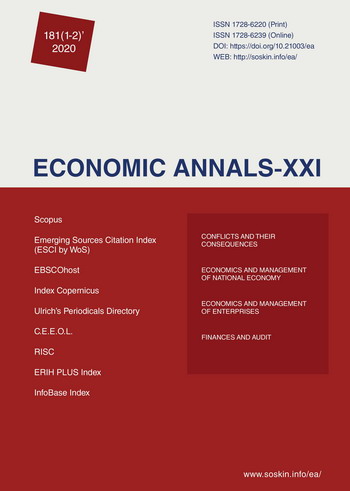Economy, public administration and legal relations under the permanent armed conflicts: paradoxes and regularities of development
Economy, public administration and legal relations under the permanent armed conflicts: paradoxes and regularities of development
Author(s): Larysa Martseniuk, Nataliia Cherniak, Svitlana Tishchenkova, Rostislav BotvinovSubject(s): Economy, Public Administration, Military policy, Peace and Conflict Studies
Published by: Institute of Society Transformation
Keywords: Permanent Armed Conflict; Economic Growth; Policy; Legal Relations; Israel; Palestine; India; Pakistan;
Summary/Abstract: The paper incorporates a recurrently resonating question: «How does a long-standing armed conflict influence the economy of the warring countries in the contemporary polycentric world where foreign-policy activity of the new «centres of power» acquires somewhat chaotic, unpredictable pattern?»Modern warfare resembles a multi-act theatrical performance with an extremely intricate script and its main actors not present in the scene but rather staying behind the curtains. Regrettably, the human casualties in these confrontations are real. They are a tribute paid to the two aspirations inherent in the humankind - for enrichment and for power. It may look as a paradox but the economy, similar to the nature, demonstrates the capacity for survival in the extreme conditions. In our case, in the conditions of permanent wars being waged for over half a century. On the example of the Israeli-Palestinian and the Indo-Pakistani conflicts, it has been proven that a long-standing inter-state conflict may become a «catalyst» for growth of economic potential or in the least ensure the stability of the development of the state. Despite the fact that both warring «dyads» consist of the players from different «weight categories» (the countries vary considerably by the population size, economic capacity and government spending), we have revealed a multitude of inherent common trends in the development of economy, system of public administration and social relations in general.We conclude that a prolonged state of «turbulence» persisting in the Middle East and South Asia, with every capacity of the economies of the countries for stabilization and development even in the conditions of war, presents a threat to the entire world. Maintaining the stability of systems with the help of destructive measures is the strategy similar to «using the time bomb with undefined impact time and zone».
Journal: Економічний часопис - ХХІ
- Issue Year: 181/2020
- Issue No: 1-2
- Page Range: 4-17
- Page Count: 14
- Language: English

